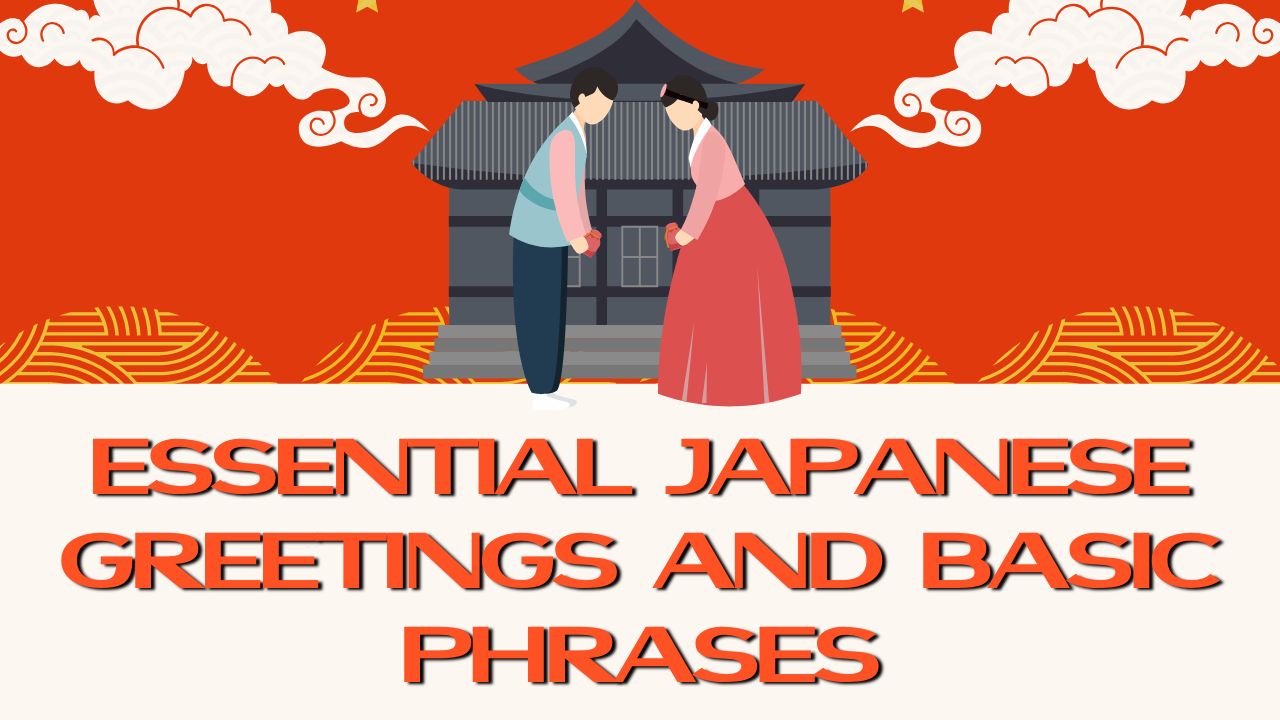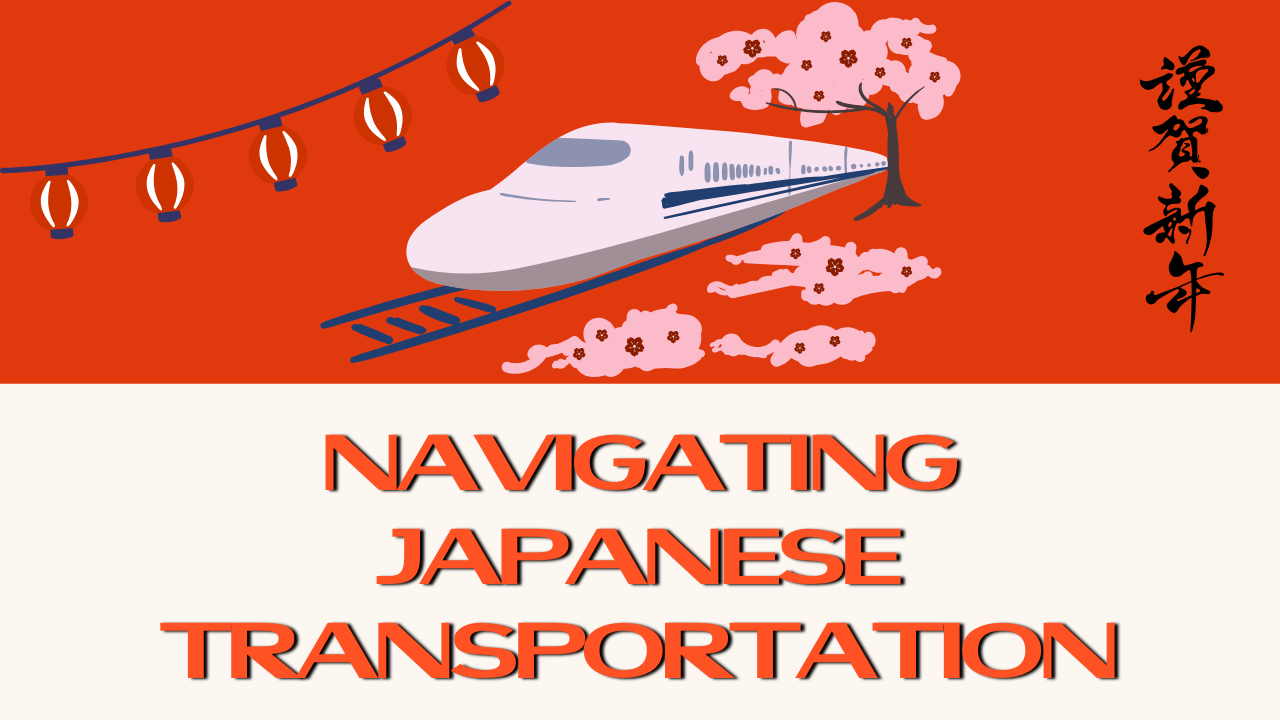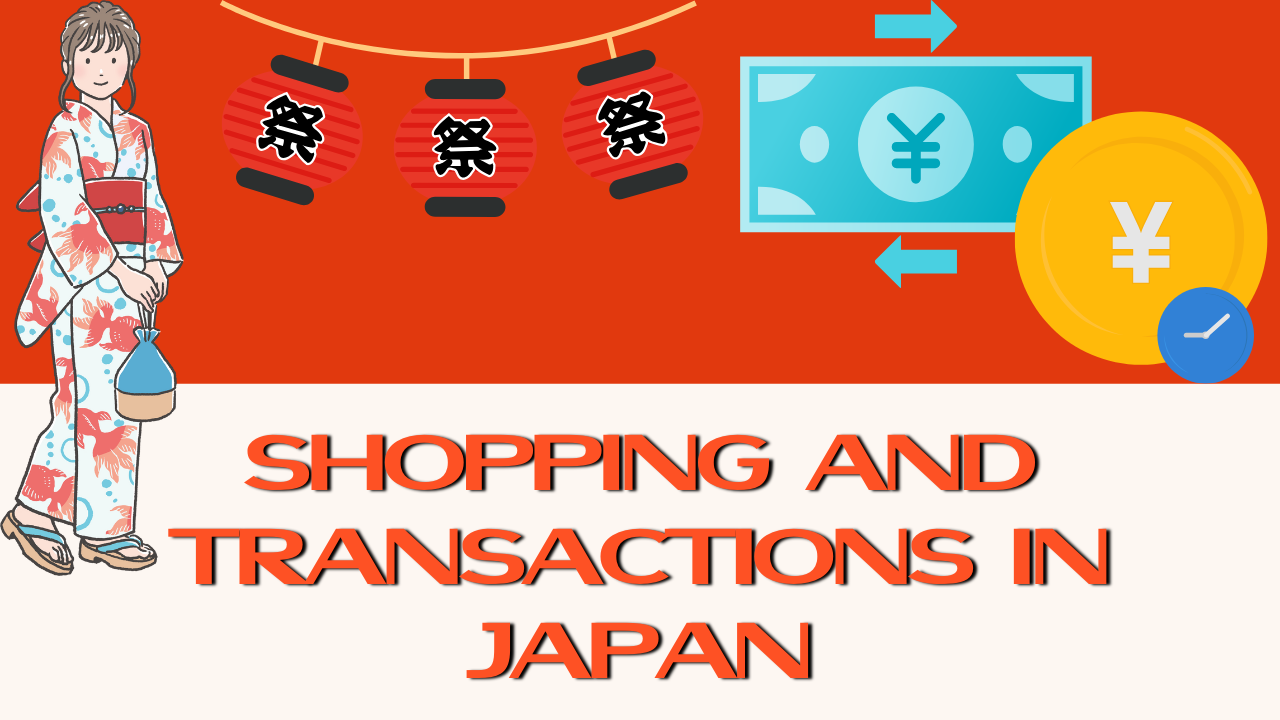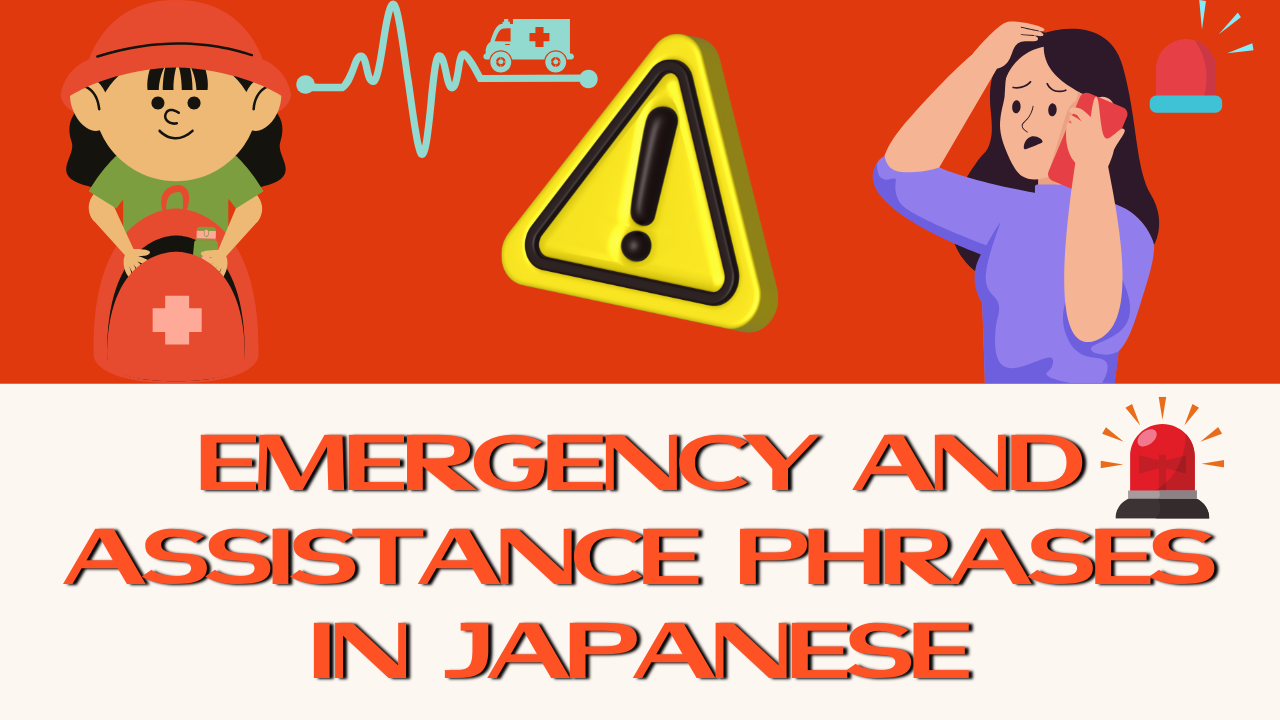Our guide, ‘200+ Common Japanese Words And Phrases For Tourists,’ helps travelers learn simple but important words and phrases. This makes everyday interactions easier and helps travelers connect more deeply with Japanese culture and people. The guide includes useful language for eating out, shopping, getting around, and dealing with emergencies. Knowing these phrases can turn a regular trip into a much richer experience. How might knowing these words change a traveler’s experience in Japan, do you think?
Essential Japanese Greetings and Basic Phrases

Let’s get into some key Japanese phrases.
Get comfortable with ‘Konnichiwa,’ which means ‘Hello.’
Say ‘Arigatou Gozaimasu’ to express ‘Thank you very much.’
Use ‘Sumimasen’ when you need to say ‘Excuse me’ or ‘I’m sorry.’
And don’t forget ‘Hai,’ which translates to ‘Yes.’
These simple words are crucial. They show respect and make your interactions go smoothly.
- Hello / Good afternoon – こんにちは (Konnichiwa)
- Good morning – おはようございます (Ohayou gozaimasu)
- Good evening – こんばんは (Konbanwa)
- Good night – おやすみなさい (Oyasumi nasai)
- Goodbye – さようなら (Sayounara)
- See you later – じゃね (Ja ne)
- Thank you – ありがとう (Arigatou)
- Thank you very much – ありがとうございます (Arigatou gozaimasu)
- Excuse me / Sorry – すみません (Sumimasen)
- Please – お願いします (Onegaishimasu)
- Yes – はい (Hai)
- No – いいえ (Iie)
- How are you? – お元気ですか? (Ogenki desu ka?)
- I’m fine, thank you – 元気です、ありがとうございます (Genki desu, arigatou gozaimasu)
- What’s your name? – お名前は何ですか? (Onamae wa nan desu ka?)
- My name is [name] – 私の名前は[name]です (Watashi no namae wa [name] desu)
- Where is [place]? – [場所]はどこですか? ([Basho] wa doko desu ka?)
- I don’t understand – わかりません (Wakarimasen)
- Can you speak English? – 英語を話せますか? (Eigo o hanasemasu ka?)
- I don’t speak Japanese very well – 日本語があまり得意ではありません (Nihongo ga amari tokui dewa arimasen)
- I’m a tourist – 私は観光客です (Watashi wa kankoukyaku desu)
- How much is this? – これはいくらですか? (Kore wa ikura desu ka?)
- Where is the bathroom? – トイレはどこですか? (Toire wa doko desu ka?)
- Help! – 助けて! (Tasukete!)
- I’m looking for [place] – [場所]を探しています ([Basho] o sagashiteimasu)
- What time is it? – 今、何時ですか? (Ima, nanji desu ka?)
- Nice to meet you – 初めまして (Hajimemashite)
- Please wait a moment – 少々お待ちください (Shoushou omachi kudasai)
- Sorry to bother you – ごめんなさい、お手数をおかけします (Gomen nasai, otesuu o okake shimasu)
- Where are you from? – どこから来ましたか? (Doko kara kimashita ka?)
- I’m from [country] – [国]から来ました ([Kuni] kara kimashita)
- Can I take a photo? – 写真を撮ってもいいですか? (Shashin o totte mo ii desu ka?)
- Can you recommend something? – 何かお勧めはありますか? (Nanika osusume wa arimasu ka?)
- I’m thirsty – 喉が渇きました (Nodo ga kawakimashita)
- It’s hot – 暑いです (Atsui desu)
- It’s cold – 寒いです (Samui desu)
- I’m tired – 疲れました (Tsukaremashita)
- I’m sick – 気分が悪いです (Kibun ga warui desu)
- It’s beautiful – 美しいです (Utsukushii desu)
- It’s interesting – 面白いです (Omoshiroi desu)
- Congratulations – おめでとうございます (Omedetou gozaimasu)
- I’m sorry (apology) – ごめんなさい (Gomen nasai)
- Can I have the bill? – お勘定をお願いします (Okanjou o onegaishimasu)
Japanese Dining and Food Phrases

When you’re dining out in Japan, knowing a few simple Japanese phrases can make your experience much better. Start your meal by saying ‘Itadakimasu’ to show gratitude. If you enjoy your food, you can say ‘Oishii’ to compliment the dish. Need water? Just ask, ‘O-mizu o onegai shimasu.’
And when you’re ready to leave, ask for the check by saying ‘Okaikei onegaishimasu.’ These easy phrases will help you fit right in and fully enjoy your meal.
- I’m hungry – お腹がすきました (Onaka ga sukimashita)
- What is this? – これは何ですか? (Kore wa nan desu ka?)
- What do you recommend? – 何をお勧めしますか? (Nani o osusume shimasu ka?)
- Do you have a menu in English? – 英語のメニューはありますか? (Eigo no menyuu wa arimasu ka?)
- I don’t eat [food] – [食べ物]を食べません ([Tabemono] o tabemasen)
- I’m vegetarian – 私はベジタリアンです (Watashi wa bejitarian desu)
- I’m allergic to [food] – [食べ物]にアレルギーがあります ([Tabemono] ni arerugii ga arimasu)
- Is it spicy? – 辛いですか? (Karai desu ka?)
- It’s delicious – おいしいです (Oishii desu)
- Can I have some water? – 水をください (Mizu o kudasai)
- I would like [dish] – [料理]をください ([Ryouri] o kudasai)
- I’ll have the same – 同じものをください (Onaji mono o kudasai)
- Can I get a takeout? – 持ち帰りできますか? (Mochikaeri dekimasu ka?)
- Is this vegetarian? – これはベジタリアンですか? (Kore wa bejitarian desu ka?)
- Do you have [dish]? – [料理]はありますか? ([Ryouri] wa arimasu ka?)
- I’d like a table for [number] – [人数]人用のテーブルをお願いします ([Ninzu] nin-you no teeburu o onegaishimasu)
- Is service charge included? – サービス料は含まれていますか? (Saabisu-ryou wa fukumareteimasu ka?)
- Could I have this without [ingredient]? – [食材]抜きでください ([Shokuzai] nuki de kudasai)
- Do you serve alcohol? – アルコールはありますか? (Arukooru wa arimasu ka?)
- What kind of drinks do you have? – どんな飲み物がありますか? (Donna nomimono ga arimasu ka?)
- Could I get the check, please? – お会計をお願いします (Okaikei o onegaishimasu)
- I’d like a coffee – コーヒーをお願いします (Koohii o onegaishimasu)
- Is this gluten-free? – これはグルテンフリーですか? (Kore wa guruten furi desu ka?)
- This is too salty – 塩辛すぎます (Shio kara sugimasu)
- This is too sweet – 甘すぎます (Amasugimasu)
- I’m full – お腹いっぱいです (Onaka ippai desu)
- More please – もっとください (Motto kudasai)
- I’m just looking – 見ているだけです (Miteiru dake desu)
- Can I have some more rice? – ご飯をもう少しください (Gohan o mou sukoshi kudasai)
- I’ll have this one – これをください (Kore o kudasai)
- I prefer [dish] – [料理]が好きです ([Ryouri] ga suki desu)
- What is the special today? – 今日のおすすめは何ですか? (Kyou no osusume wa nan desu ka?)
- I’ll have it to go – 持ち帰りでお願いします (Mochikaeri de onegaishimasu)
- Could I have it without [ingredient]? – [食材]なしでお願いします ([Shokuzai] nashi de onegaishimasu)
- Is it fresh? – 新鮮ですか? (Shinsen desu ka?)
- It’s too hot – 熱すぎます (Atsu sugimasu)
- Can I pay with a credit card? – クレジットカードで払えますか? (Kurejitto kaado de haraemasu ka?)
- It’s not bad – 悪くないです (Warukunai desu)
- I don’t like it – 好きじゃないです (Suki janai desu)
- Do you have a non-smoking area? – 禁煙席はありますか? (Kinen seki wa arimasu ka?)
- Do you have a dessert menu? – デザートメニューはありますか? (Dezaato menyuu wa arimasu ka?)
- It’s too expensive – 高すぎます (Takasugimasu)
- It’s cheap – 安いです (Yasui desu)
Navigating Japanese Transportation

After you’ve had a good meal, figuring out how to get around in Japan is your next step. Japan’s transport system is really well set up. It includes buses, trains, and subways. Useful phrases to remember are ‘Eki wa doko desu ka?’ which means ‘Where is the station?’ and ‘Kippu’ which means ‘ticket’. To make things easier, you might want to get a prepaid card like Suica or Pasmo.
- Where is the train station? – 駅はどこですか? (Eki wa doko desu ka?)
- How much is the fare? – 運賃はいくらですか? (Unchin wa ikura desu ka?)
- Is this the right train for [destination]? – これは[目的地]行きの電車ですか? (Kore wa [mokutekichi] yuki no densha desu ka?)
- Where can I buy tickets? – 券売機はどこですか? (Kenbaiki wa doko desu ka?)
- I need a ticket to [destination] – [目的地]行きの切符をください ([Mokutekichi] yuki no kippu o kudasai)
- Where is the subway? – 地下鉄はどこですか? (Chikatetsu wa doko desu ka?)
- Which platform is for [destination]? – [目的地]行きのホームはどれですか? ([Mokutekichi] yuki no hoomu wa dore desu ka?)
- How long does it take to get to [destination]? – [目的地]までどのくらいかかりますか? ([Mokutekichi] made dono kurai kakarimasu ka?)
- I’m lost – 道に迷いました (Michi ni mayoimashita)
- Where can I catch a taxi? – タクシー乗り場はどこですか? (Takushii noriba wa doko desu ka?)
- How far is it to [destination]? – [目的地]までどのくらいかかりますか? ([Mokutekichi] made dono kurai kakarimasu ka?)
- I need a taxi – タクシーを呼んでください (Takushii o yonde kudasai)
- Can you take me to [destination]? – [目的地]まで行ってください ([Mokutekichi] made itte kudasai)
- Stop here, please – ここで止めてください (Koko de tomete kudasai)
- How much is the taxi fare? – タクシーの運賃はいくらですか? (Takushii no unchin wa ikura desu ka?)
- Can you take the express? – 急行をお願いします (Kyuko o onegaishimasu)
- Where can I buy a JR pass? – JRパスはどこで買えますか? (JR pasu wa doko de kaemasu ka?)
- Is there a direct route to [destination]? – [目的地]への直行便はありますか? ([Mokutekichi] e no chokkoubin wa arimasu ka?)
- Can I change trains here? – ここで乗り換えできますか? (Koko de norikae dekimasu ka?)
- Which line goes to [destination]? – [目的地]行きはどの線ですか? ([Mokutekichi] yuki wa dono sen desu ka?)
- Where do I transfer to get to [destination]? – [目的地]に行くにはどこで乗り換えますか? ([Mokutekichi] ni iku ni wa doko de norikaemasu ka?)
- Is there a bus to [destination]? – [目的地]行きのバスはありますか? ([Mokutekichi] yuki no basu wa arimasu ka?)
- What time is the last train? – 最終電車は何時ですか? (Saishuu densha wa nanji desu ka?)
- How do I get to [destination] by train? – [目的地]まで電車でどう行きますか? ([Mokutekichi] made densha de dou ikimasu ka?)
- Do I need to change trains? – 乗り換えは必要ですか? (Norikae wa hitsuyou desu ka?)
- Where can I rent a bicycle? – 自転車はどこで借りられますか? (Jitensha wa doko de kariraremasu ka?)
- Do you have a map of the subway? – 地下鉄の地図はありますか? (Chikatetsu no chizu wa arimasu ka?)
- I need to go to the airport – 空港に行きたいです (Kuukou ni ikitai desu)
- What time does the last bus leave? – 最終バスは何時ですか? (Saishuu basu wa nanji desu ka?)
- Where is the bus stop? – バス停はどこですか? (Basu tei wa doko desu ka?)
- How much is the bus fare? – バスの運賃はいくらですか? (Basu no unchin wa ikura desu ka?)
- Does this train stop at [destination]? – この電車は[目的地]に止まりますか? (Kono densha wa [mokutekichi] ni tomarimasu ka?)
- Where is the JR line? – JR線はどこですか? (JR-sen wa doko desu ka?)
- Is this the express train? – これは急行ですか? (Kore wa kyuko desu ka?)
- How do I get to the platform? – ホームにはどうやって行きますか? (Ho-mu ni wa douyatte ikimasu ka?)
- I need to go to the [station] – [駅]に行きたいです ([Eki] ni ikitai desu)
- Where can I catch the airport shuttle? – 空港シャトルバスはどこで乗れますか? (Kuukou shatoru basu wa doko de noremasu ka?)
- Is there a taxi stand at the station? – 駅にタクシー乗り場がありますか? (Eki ni takushii noriba ga arimasu ka?)
- Where is the nearest station? – 最寄り駅はどこですか? (Moyori eki wa doko desu ka?)
Also Read: How To Say “Hello” In Japanese: 21+ Unique Japanese Greetings
Shopping and Transactions in Japan

Shopping in Japan is a great experience, whether you’re exploring busy markets or fancy stores. It’s useful to know a few phrases like ‘Ikura desu ka?’ which means ‘How much is this?’ and ‘Sore o moraimasu,’ meaning ‘I’ll take it.’
You’ll see prices clearly marked. People usually pay with cash, but more and more places take credit cards now. Just so you know, it’s not typical to bargain in Japanese shops.
- How much is this? – これはいくらですか? (Kore wa ikura desu ka?)
- Do you have [item]? – [Item] はありますか? ([Item] wa arimasu ka?)
- I’ll take this. – これをください (Kore o kudasai)
- Can I pay with credit card? – クレジットカードで払えますか? (Kurejitto kaado de haraemasu ka?)
- Do you accept foreign cards? – 外国のカードは使えますか? (Gaikoku no kaado wa tsukaemasu ka?)
- Where is the nearest store? – 一番近い店はどこですか? (Ichiban chikai mise wa doko desu ka?)
- Do you have a discount? – 割引はありますか? (Waribiki wa arimasu ka?)
- Can I try this on? – 試着してもいいですか? (Shichaku shitemo ii desu ka?)
- Can I exchange this? – これを交換できますか? (Kore o koukan dekimasu ka?)
- Where can I buy [item]? – [Item] はどこで買えますか? ([Item] wa doko de kaemasu ka?)
- Do you have a fitting room? – 試着室はありますか? (Shichakushitsu wa arimasu ka?)
- I’m just looking. – 見ているだけです (Mite iru dake desu)
- Can I get a refund? – 返金できますか? (Henkin dekimasu ka?)
- Do you have this in another size? – 他のサイズはありますか? (Hoka no saizu wa arimasu ka?)
- Is this handmade? – これは手作りですか? (Kore wa tezukuri desu ka?)
- I don’t need a bag. – バッグは必要ありません (Baggu wa hitsuyou arimasen)
- Do you offer tax-free shopping? – 免税で買えますか? (Menzei de kaemasu ka?)
- How much is the tax? – 税金はいくらですか? (Zeikin wa ikura desu ka?)
- Can I get a receipt? – レシートをもらえますか? (Reshiito o moraemasu ka?)
- Where can I find souvenirs? – お土産はどこで買えますか? (Omiyage wa doko de kaemasu ka?)
- I’m looking for [item]. – [Item] を探しています ([Item] o sagashite imasu)
- Can you gift wrap this? – これをラッピングしてもらえますか? (Kore o rappingu shite moraemasu ka?)
- Can I use a coupon? – クーポンは使えますか? (Kupon wa tsukaemasu ka?)
- Can I return this? – これを返品できますか? (Kore o henpin dekimasu ka?)
- Is this on sale? – これはセール中ですか? (Kore wa seeruchuu desu ka?)
- Do you have any promotions? – セールはありますか? (Seeru wa arimasu ka?)
- Where is the checkout? – レジはどこですか? (Reji wa doko desu ka?)
- Can you give me a discount? – 割引してもらえますか? (Waribiki shite moraemasu ka?)
- Can I pay in cash? – 現金で払えますか? (Genkin de haraemasu ka?)
- Can you pack this in a box? – これを箱に詰めてもらえますか? (Kore o hako ni tsumete moraemasu ka?)
- Do you have a loyalty program? – 会員プログラムはありますか? (Kaiin puroguramu wa arimasu ka?)
- Do you have [brand]? – [Brand] はありますか? ([Brand] wa arimasu ka?)
- Can I get this with a warranty? – 保証付きで買えますか? (Hoshou tsuki de kaemasu ka?)
- How much is the shipping? – 配送料はいくらですか? (Haisouryou wa ikura desu ka?)
- Do you offer free shipping? – 無料配送はありますか? (Muryou haisou wa arimasu ka?)
- Can I pick this up in store? – 店舗で受け取ることはできますか? (Tenpo de uketoru koto wa dekimasu ka?)
- I’ll pay in [currency]. – [Currency] で払います ([Currency] de haraimasu)
- Do you have this in a different color? – これは別の色がありますか? (Kore wa betsu no iro ga arimasu ka?)
- Is there a discount for students? – 学生割引はありますか? (Gakusei waribiki wa arimasu ka?)
- Can you write the price on the bag? – 価格を袋に書いてもらえますか? (Kakaku o fukuro ni kaite moraemasu ka?)
- Do you offer tax refund? – 税金の払い戻しはありますか? (Zeikin no haraimodoshi wa arimasu ka?)
- How long is the warranty? – 保証期間はどれくらいですか? (Hoshou kikan wa dorekurai desu ka?)
- Is there a sales tax? – 消費税はありますか? (Shouhizei wa arimasu ka?)
- Can I get this as a gift? – これをギフトとして購入できますか? (Kore o gifuto toshite kounyuu dekimasu ka?)
- Can I try it before buying? – 買う前に試せますか? (Kau mae ni tamesemasu ka?)
- I will buy this later. – 後で買います (Ato de kaimasu)
Emergency and Assistance Phrases in Japanese

Knowing some basic emergency phrases in Japanese is really useful if you run into trouble while traveling in Japan. For example, if you need immediate help, you can shout ‘Tasukete!’ which means ‘Help!’.
If the situation calls for police, you should say ‘Keisatsu wo yonde kudasai’, meaning ‘Please call the police’. And if you need a hospital, just ask ‘Byouin wa doko desu ka?’, which translates to ‘Where is the hospital?’. These simple phrases can make a big difference in keeping you safe.
- Help! – 助けて! (Tasukete!)
- I need help. – 助けが必要です (Tasuke ga hitsuyou desu)
- Call the police! – 警察を呼んでください! (Keisatsu o yonde kudasai!)
- Call an ambulance! – 救急車を呼んでください! (Kyuukyuu sha o yonde kudasai!)
- I’m lost. – 道に迷いました (Michi ni mayoimashita)
- Where is the nearest hospital? – 一番近い病院はどこですか? (Ichiban chikai byouin wa doko desu ka?)
- I need a doctor. – 医者が必要です (Isha ga hitsuyou desu)
- I’m hurt. – ケガをしました (Kega o shimashita)
- I need a pharmacy. – 薬局が必要です (Yakkyoku ga hitsuyou desu)
- I feel sick. – 気分が悪いです (Kibun ga warui desu)
- Where is the nearest police station? – 一番近い警察署はどこですか? (Ichiban chikai keisatsu-sho wa doko desu ka?)
- I’ve lost my wallet. – 財布をなくしました (Saifu o nakushimashita)
- I’ve lost my passport. – パスポートをなくしました (Pasupooto o nakushimashita)
- I’ve been robbed! – 強盗にあいました! (Goutou ni aimashita!)
- My phone was stolen. – 携帯電話が盗まれました (Keitai denwa ga nusumaremashita)
- Can you help me find my way? – 道を教えてもらえますか? (Michi o oshiete moraemasu ka?)
- I can’t find my hotel. – ホテルが見つかりません (Hoteru ga mitsukarimasen)
- I need to go to the embassy. – 大使館に行かなければなりません (Taishikan ni ikanakereba narimasen)
- I’m in trouble. – 困っています (Komatte imasu)
- Is there a hospital nearby? – 近くに病院はありますか? (Chikaku ni byouin wa arimasu ka?)
- I’m allergic to [substance]. – [Substance] にアレルギーがあります ([Substance] ni arerugii ga arimasu)
- I need a translator. – 翻訳者が必要です (Hon’yakusha ga hitsuyou desu)
- Where is the nearest convenience store? – 一番近いコンビニはどこですか? (Ichiban chikai konbini wa doko desu ka?)
- I need to charge my phone. – 携帯電話を充電したいです (Keitai denwa o juuden shitai desu)
- My credit card doesn’t work. – クレジットカードが使えません (Kurejitto kaado ga tsukaemasen)
- I’ve been in an accident. – 事故に遭いました (Jiko ni aimashita)
- I’m looking for a hospital. – 病院を探しています (Byouin o sagashite imasu)
- Where is the nearest fire station? – 一番近い消防署はどこですか? (Ichiban chikai shoubou-sho wa doko desu ka?)
- I need to report a crime. – 犯罪を報告する必要があります (Hanzai o houkoku suru hitsuyou ga arimasu)
- I’ve lost my luggage. – 荷物をなくしました (Nimotsu o nakushimashita)
- Can you help me find a hospital? – 病院を探すのを手伝ってもらえますか? (Byouin o sagasu no o tetsudatte moraemasu ka?)
- My friend is missing. – 友達が行方不明です (Tomodachi ga yukue fumei desu)
- I’m locked out of my hotel room. – ホテルの部屋に閉じ込められました (Hoteru no heya ni tojikomeraremashita)
- I need a safe place. – 安全な場所が必要です (Anzen na basho ga hitsuyou desu)
- Can I borrow a phone? – 電話を借りてもいいですか? (Denwa o karite mo ii desu ka?)
- I’m experiencing a medical emergency. – 医療の緊急事態です (Iryou no kinkyuu jitai desu)
- Please take me to the hospital. – 病院に連れて行ってください (Byouin ni tsurete itte kudasai)
- Where can I get help? – どこで助けを求められますか? (Doko de tasuke o motomeraremasu ka?)
- My child is missing. – 子供がいなくなりました (Kodomo ga inaku narimashita)
- I’ve been attacked! – 攻撃されました! (Kougeki saremashita!)
- Can you help me call the police? – 警察に電話するのを手伝ってもらえますか? (Keisatsu ni denwa suru no o tetsudatte moraemasu ka?)
- I’m having a heart attack. – 心臓発作です (Shinzou hossa desu)
- Please send an ambulance. – 救急車を送ってください (Kyuukyuu sha o okutte kudasai)
- Where is the nearest public phone? – 一番近い公衆電話はどこですか? (Ichiban chikai koushuu denwa wa doko desu ka?)
- I can’t breathe. – 息ができません (Iki ga dekimasen)
- I need a doctor immediately. – すぐに医者が必要です (Sugu ni isha ga hitsuyou desu)
Conclusion
In short, knowing some basic Japanese words and phrases really makes a trip to Japan better. It helps you get around, from eating out and shopping to catching a train or dealing with emergencies. Plus, it shows you respect the culture. With these key words in your pocket, you can explore with more confidence and really connect with Japan’s unique culture and everyday life. Keep visiting the Translation Blog for more interesting translation articles like this.

